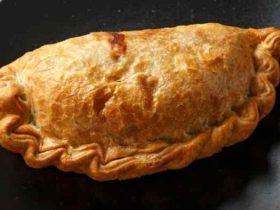Ingredient List and Analysis
Mountain dew 12 oz nutrition facts – Mountain Dew, a popular citrus-flavored carbonated soft drink, contains a blend of ingredients that contribute to its distinctive taste and characteristics. Understanding these ingredients and their roles provides insight into the beverage’s composition and potential effects on the consumer. This analysis examines the ingredient list of a 12-ounce can of Mountain Dew, categorizes them, and compares them to similar soft drinks.
Ingredient List Categorization, Mountain dew 12 oz nutrition facts
The ingredients in a 12-ounce can of Mountain Dew can be broadly categorized into sweeteners, acids, flavors, and other additives. The exact proportions are proprietary information, but the general order of prevalence is usually sweeteners, water, acids, and then flavorings and preservatives. This section will present the ingredients alphabetically within each category for clarity. Note that ingredient lists can vary slightly depending on production location and minor recipe adjustments.
- Acids: Citric Acid (provides tartness and acts as a preservative). Phosphoric Acid (contributes to the tangy flavor and acts as a preservative).
- Flavors: Natural and Artificial Flavors (a complex blend creating the signature Mountain Dew taste, typically including citrus and other fruit notes). These flavors are often proprietary blends not fully disclosed by the manufacturer.
- Other Additives: Caffeine (a stimulant), Sodium Citrate (acts as a buffer to control acidity and enhance flavor), Sodium Benzoate (a preservative), Sucralose (an artificial sweetener).
- Sweeteners: High Fructose Corn Syrup (a primary source of sweetness), Sugar (contributes to sweetness).
- Water: Carbonated Water (forms the base of the beverage and provides the carbonation).
Ingredient Function Analysis
Each ingredient plays a specific role in creating the overall Mountain Dew experience. High Fructose Corn Syrup and Sugar provide the sweetness, while Citric and Phosphoric Acids deliver the tartness and act as preservatives. The blend of natural and artificial flavors creates the characteristic taste profile. Caffeine provides a stimulating effect, and preservatives like Sodium Benzoate help extend shelf life.
Sodium Citrate acts as a buffer, helping to maintain a consistent pH level. Sucralose, a relatively newer addition, further contributes to sweetness while reducing the overall sugar content compared to earlier formulations.
Comparison to Similar Carbonated Soft Drinks
Mountain Dew’s ingredient list shares similarities with other citrus-flavored carbonated soft drinks, such as Sprite and 7 Up. All typically utilize carbonated water as a base, and include citric acid for tartness and sweeteners for sweetness. However, the specific types and proportions of sweeteners, flavors, and other additives differentiate these beverages. Mountain Dew distinguishes itself through its unique blend of flavors, the inclusion of phosphoric acid, and its higher caffeine content compared to many of its competitors.
The addition of Sucralose is a point of differentiation from many traditional colas and citrus sodas, reflecting a trend towards reduced sugar content in many beverage formulations.
FAQ Insights: Mountain Dew 12 Oz Nutrition Facts
Is Mountain Dew 12 oz high in caffeine?
Yes, it contains a significant amount of caffeine, so be mindful if you’re sensitive to it.
Are there different flavors of Mountain Dew in 12 oz cans?
Yep, they offer various flavors besides the original green, check your local store!
Can I recycle the Mountain Dew can?
Definitely! Check your local recycling guidelines for aluminum cans.
Does Mountain Dew contain artificial sweeteners?
Yes, it usually contains high fructose corn syrup and other artificial sweeteners.
Let’s face it, Mountain Dew’s 12 oz can packs a sugary punch. Understanding its nutritional profile is crucial for mindful consumption, but sometimes a contrast helps. For example, comparing it to the protein and iron content found in minced meat nutrition facts highlights just how different these food choices are. Ultimately, making informed decisions about your Mountain Dew intake requires awareness of its sugar and calorie content.



